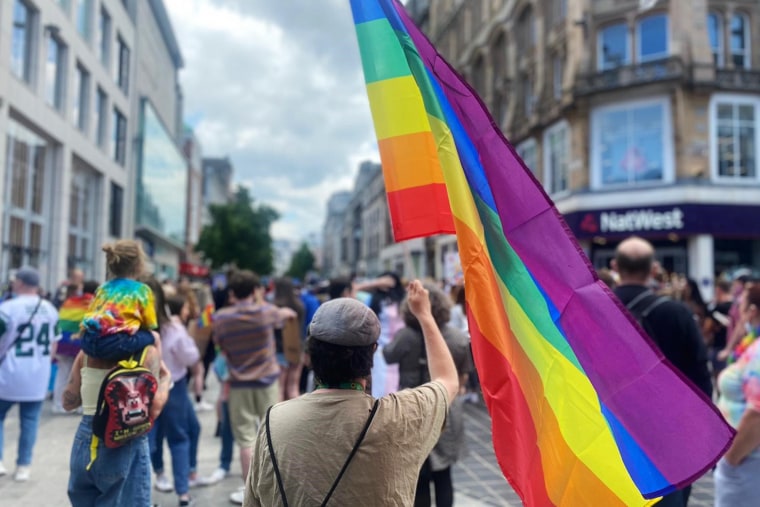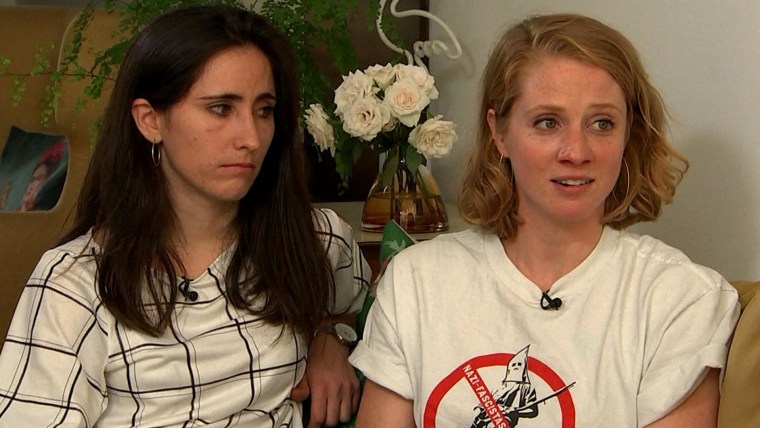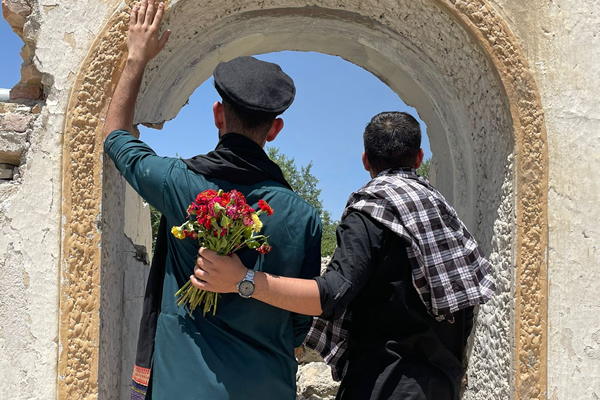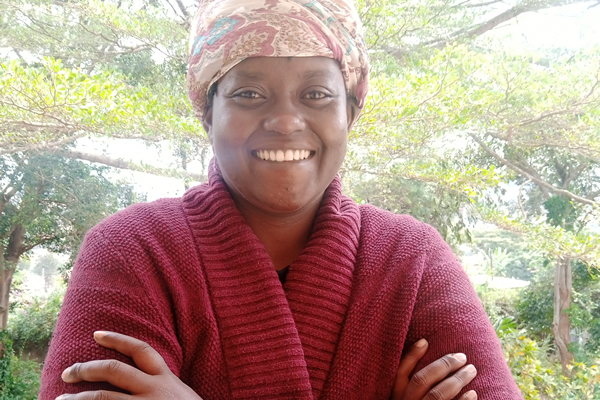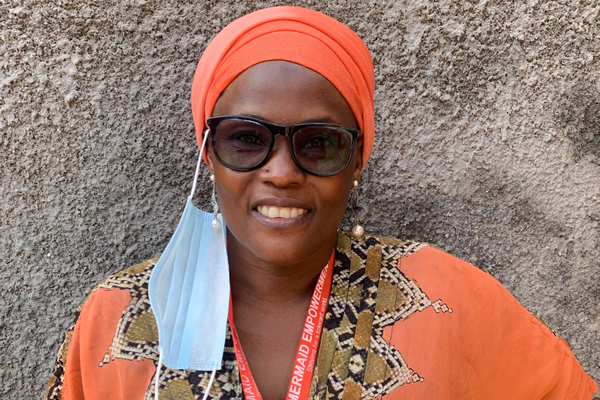N, a 20-year-old student living in Afghanistan, is in hiding as she hopes for news that she and her family can leave the country. As a lesbian, she believes she will be targeted by the Taliban government.
“They will kill us without sympathy,” she said, requesting that her full name and exact location not be published to protect her safety.
Faraz, who asked to be identified by only one name, is a 25-year-old gay man who said he fears for himself and his three sons. He fears he and his family will be kidnapped and killed if they remain in Afghanistan.
“The Taliban is in search of the gay people. They are going from street to street,” he said, pleading for the U.S. State Department to evacuate him and his family.
U.S officials expect 50,000 to 65,000 Afghans will seek evacuation in the wake of the Taliban’s takeover of Kabul, the country’s capital. Among those seeking to flee are LGBTQ Afghans like N and Faraz.
While homosexuality has long been criminalized in Afghanistan, advocates fear the situation for gay Afghans will become even more perilous under the Taliban, who may choose to apply the death penalty for same-sex conduct, which they reportedly did during their first stint in power from 1996-2001.
Who’s considered ‘at risk’?
The State Department has pledged to evacuate vulnerable people from the country, but it is unclear whom they consider vulnerable and how many LGBTQ Afghans will be given the opportunity to leave.
“We are working to get as many people who want to leave Afghanistan and who are vulnerable to Taliban reprisals because they helped the United States and our allies and partners, or who are otherwise at risk because of who they are, or what they do, or what they believe, out of the country as quickly and as safely as possible,” a State Department spokesperson told NBC News in an email.
On Tuesday, Rep. Chris Pappas, D-N.H., called on the State Department to be explicit about the inclusion of LGBTQ Afghans in its “Priority 2” designation, which includes individuals who worked for the U.S. government and whose affiliation with the U.S. puts them at risk.
“In the spirit of upholding our values and leading by example, we urge you to expand the Department of State’s P-2 designation granting USRAP access for Afghan nationals to explicitly include LGBTQ+ Afghans,“ Pappas’ letter, referring to the United States Refugee Admissions Program, states. “While we appreciate that the situation in Afghanistan is fluid, you have the power to protect the lives of countless LGBTQ+ Afghans from the horrors they face living under a regime that threatens their very existence.”
Earlier this month, over a dozen senators sent a letter to Secretary of State Antony Blinken asking for clarification on the department’s commitment to “protect vulnerable LGBTQI+ refugees and asylum seekers,” citing a February presidential memo affirming the administration’s commitment to advancing LGBTQ rights in U.S. foreign policy.
LGBTQ organizations in the U.S. shared in the call to action.
“We urge the Biden Administration to match its pro-LGBTQ rhetoric with concrete actions in this perilous moment,” Kevin Jennings, CEO of LGBTQ legal advocacy group Lambda Legal, said in a statement. “The return of the Taliban is a virtual death sentence for LGBTQ Afghans, and the Biden Administration must step up to protect our siblings in Afghanistan because time is of the essence.”
‘This could have been done differently’
Several LGBTQ and human rights advocates expressed frustration with what seemed like a lack of preparation on the part of the Biden administration that worsened the situation for LGBTQ Afghans.
“What we are seeing this week was avoidable,” Jenna Gilbert, director of refugee representation at Human Rights First, said. “We could have had a more robust evacuation process. This could have been done differently and in a coordinated manner.”
Nemat Sadat, a former political science professor at the American University of Afghanistan, said the withdrawal is “one of the biggest mistakes in U.S. foreign policy history.” Sadat, who now lives in the U.S., was removed from his faculty position in Kabul and received death threats due to his outspoken advocacy on LGBTQ rights.
“I understand nobody likes war, everyone is tired of war,” he said, adding it feels like the United States is abandoning the people of Afghanistan. “Whatever progress has been made in 10 years, it will be totally gone,” he said of the small amount of progress that has been made by sexual and gender minorities.
Kimahli Powell, executive director of Rainbow Railroad, a Toronto-based organization that assists LGBTQ refugees and asylum-seekers, said the administration’s Aug. 31 withdrawal deadline “puts tremendous pressure on an already chaotic situation.”
“A fixed deadline within a week is only going to result in panic,” he said, “and people using whatever means they can to get out. That’s what it means for the LGBTQI community.”
Prior to the crisis, the Biden administration was on course to admit fewer refugees than the Trump administration did in 2020. The U.S. admitted only 6,274 refugees as of July 31, while the Trump administration admitted 11,841 in 2020, according to figures from the State Department and the nonpartisan Migration Policy Institute.
It was only in May that President Joe Biden raised the cap on the number of refugees the U.S. accepts, from 15,000 under the Trump administration to 62,500, and only after pressure from his own party.
For her part, N blames the U.S. for the chaos of the withdrawal.
“I know they should leave here one day,” she said, “but withdrawal like this is not fair, especially in the case of women, children, because they had lots of hopes and dreams like me, but now instead of thinking about our hopes we just want to get out of this situation.”
‘Uniquely vulnerable’
While questions remain about how many refugees the U.S. and other Western countries will accept, many LGBTQ Afghans confront an uncertain future.
Homosexuality was criminalized under the previous Afghan government, and LGBTQ people reported facing violence and harassment, including from state officials. Organizations working on behalf of LGBTQ rights were not allowed to work openly or register with the government.
Recommended
“Even in the last 20 years, when women and ethnic minorities were moving up, LGBTQ people struggled to even exist,” Sadat said. “They had some breathing room to exist if they kept their sexuality under wraps.”
But despite the difficult situation LGBTQ Afghans faced before, advocates worry that the Taliban will cause their situation to deteriorate further.
“There is real fear that a resurgent Taliban government will target the LGBTQI community, and I think that fear is founded,” Powell said. “At the moment, everyone who feels they may be targeted by the Taliban are looking for solutions.”
Sadat, however, said it’s impractical to think all LGBTQ people will be able to flee Afghanistan. “I am not under delusions we are going to get 1 million LGBTQ people out,” he said.
Globally, over 82 million people were forced to migrate in 2020, and the number of LGBTQ refugees has risen over the past few years, according to the U.N. refugee agency.
Powell said his organization receives between 3,000 and 4,000 requests for assistance each year from LGBTQ people across the globe.
“LGBTQI persons are uniquely vulnerable to forced displacement and are targets of state-sponsored homophobia, transphobia and biphobia,” he said.
Currently, at least 67 countries criminalize consensual same-sex conduct, of which the death penalty may be applied in up to 11, including Afghanistan, according to a report by the International Lesbian, Gay, Bisexual, Trans and Intersex Association (ILGA).
Even for those who are able to flee their countries of origin, challenges remain. Those arriving in the U.S. with a visa have the option to apply for asylum. These individuals need to find a lawyer, but there are not enough lawyers for the “overwhelming” number of applicants, Human Rights First’s Gilbert said.
New arrivals to the U.S. may not speak English, have access to government assistance or be permitted to work. LGBTQ refugees and asylum-seekers may also not have access to psychosocial services such as therapy or medical treatment they might need, she added.
Other migrants who arrive without a visa and claim asylum upon arrival are detained in immigration detention facilities. A “credible fear” interview is conducted, usually a few weeks after arrival, and they may be detained during the entire process, Gilbert said.
“Those people are essentially in a prison setting,” she said, adding that it can be months before they receive a hearing in an immigration court.
When LGBTQ individuals are put into detention, they may feel the need to hide their identities for fear of being targeted by biased immigration officials, according to Edward Alessi, a Rutgers University associate professor who specializes in LGBTQ mental health.
At the same time, LGBTQ people who are seeking asylum on the basis of persecution because of their identity will need to prove their sexual and gender identities to officials.
“You need to show not only that you are persecuted, but that you are persecuted because you are LGBTQ,” Alessi said. “It’s invasive. It becomes about private moments.”
He said asylum-seekers may be forced to relive traumatic moments of their lives when they were victims of violence and abuse because of their identities. Further, refugees may feel the need to conform to Western conceptions of what it means to be LGBTQ to have their applications be considered legitimate, he said.
‘We need proactive tools’
Several LGBTQ advocates said they’d like to see major changes in how the international community handles forced migration.
Alessi said changes need to be made to provide more economic, psychological and social support to help LGBTQ people navigate the complicated asylum process.
“Whether it is conflict or climate change, forced displacement is going to be a part of our lives,” Powell said. “For the LGBTQI community, we need proactive tools in advance to deal with these situations.”
In a message to national governments, he said, “Work with us to come up with proactive policies so that when these situations occur, we can mobilize and help people.”
